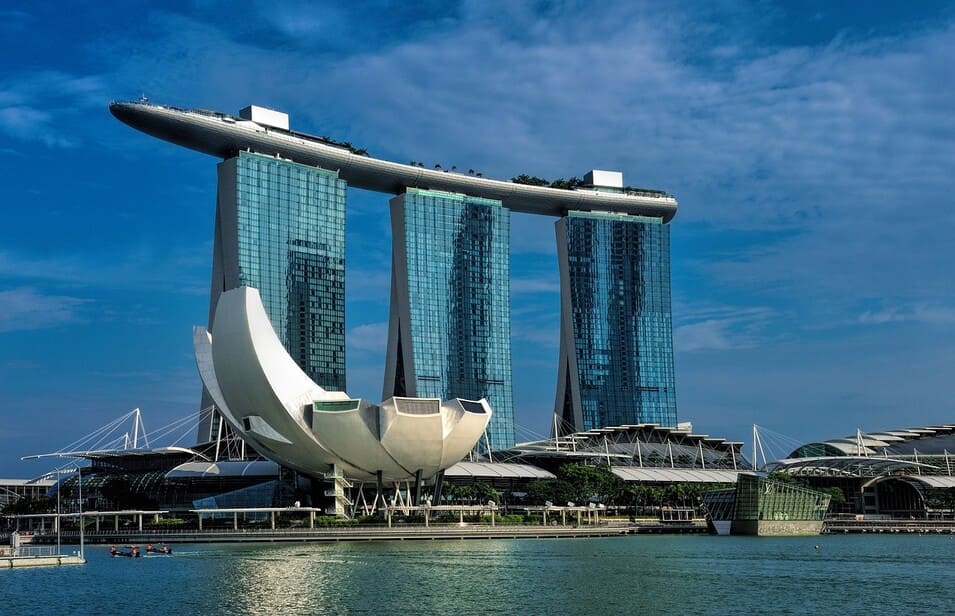
The Polyglot's Playground: Singapore's Diverse Dialects
Singapore, a melting pot of cultures and a beacon of diversity is a nation where language is not just a means of communication but a testament to its multicultural heritage. This article delves into the intriguing world of Singapore's official and native languages, unraveling the linguistic tapestry that defines this city-state.
From the prominence of English as the official language to the rich history of Malay, Mandarin, and Tamil as national languages, and the vibrant presence of numerous dialects and Singlish in everyday life, we explore how language reflects Singapore's unique identity and its ongoing commitment to inclusivity in a globalized world.
Join us on a linguistic journey through the heart of Singapore, where languages not only bridge gaps but also celebrate the rich tapestry of its people and their shared history.
The Four Official Languages of Singapore
Singapore stands out as one of the few countries with four official languages. Singapore's official languages are Malay, Mandarin Chinese, Tamil, and English. Each holds a specific role in the nation's cultural and administrative framework. Let's delve into the significance and history of each of Singapore’s official languages.
-
Malay (Bahasa Melayu) - The National Language of Singapore
Malay is Singapore's national language and holds a position of prominence. Its significance stems from Singapore's historical ties to the Malay Archipelago, as the island was once part of Malaysia. Malay serves as a unifying language and is used in various official capacities, such as road signs, official documents, and the national anthem, "Majulah Singapura" ("Onward Singapore"). While it is the national language, it is not the most widely spoken as a mother tongue.
-
Mandarin Chinese
Mandarin Chinese is the most widely spoken language in Singapore, primarily due to the large Chinese ethnic population. The linguistic landscape of Singapore is heavily influenced by the various Chinese dialects brought over by immigrants. However, the government actively promotes Standard Mandarin, known as Huáyǔ, as the lingua franca for business, education, and administration. This effort reflects the importance of maintaining a common language among the diverse Chinese-speaking communities in Singapore.
-
Tamil
Tamil, one of the four official languages, is primarily spoken by the Indian Tamil community in Singapore. Its presence in Singapore has deep historical roots, with South Indian immigrants bringing the language and culture to the region. Tamil serves as a vital link to the Indian heritage of the nation and plays a significant role in Singapore's vibrant arts and cultural scene.
-
English
English plays a pivotal role in Singaporean society as the language of education and administration. It is the medium of instruction in schools and the primary language used by the government. Singapore's proficiency in English is renowned globally and has contributed significantly to its economic success. English serves as the bridge that connects the various linguistic communities in Singapore.
Singapore Native Languages
Singapore, with its cosmopolitan character and multicultural population, is a linguistic melting pot. While Malay, Mandarin Chinese, Tamil, and English serve as the official languages of Singapore, numerous Singapore native languages and dialects coexist alongside these. These native languages reflect the diverse backgrounds of Singaporeans and contribute to the nation's unique cultural heritage.
-
Hokkien - A Resonance of Chinese Heritage
Hokkien, a Chinese dialect, has a deep-rooted presence in Singapore due to historical ties with the Hokkien-speaking Chinese community. It is widely spoken and is often used colloquially, particularly among the older generation. Hokkien serves as a reminder of the Chinese heritage that has enriched Singapore's cultural fabric.
-
Cantonese - A Lingering Legacy
Cantonese is another prominent Chinese dialect spoken by a considerable number of Singaporeans. Although not as widespread as Hokkien or Mandarin, it holds its own among the various Chinese dialects and serves as a linguistic link to the Cantonese-speaking community's cultural traditions.
-
Teochew - Preserving Culinary and Cultural Traditions
Teochew, yet another Chinese dialect, is spoken by the Teochew Chinese community in Singapore. Despite having fewer speakers, it is cherished for preserving cultural and culinary traditions unique to this group. The language connects individuals to their heritage and the practices of their ancestors.
-
Malay Dialects - Diversity within Malay
While Malay is the official language, Singapore is home to several Malay dialects. Javanese Malay, Bugis Malay, and Boyanese Malay are some of the dialects that offer insights into the diverse origins of the Malay community in Singapore. These dialects are more than just variations of the Singapore official language; they are carriers of distinct cultural nuances.
-
Punjabi - A Vibrant Heritage
The Punjabi language is a testament to the vibrant Sikh community in Singapore. It is spoken and celebrated through cultural events, religious practices, and festivals. Punjabi is a symbol of the community's rich heritage and identity.
-
Filipino and Tagalog - The Philippines Connection
The growing Filipino community speaks the Filipino and Tagalog languages in Singapore. These languages bridge the gap between Filipinos and the broader Singaporean society, allowing for better integration and communication.
-
Bengali - A Cultural Link
Bengali is spoken by the Bengali community in Singapore and serves as a connection to their rich cultural heritage. It is not just a means of communication but a way to maintain their cultural identity, including literature, music, and cuisine.
-
Malay Creoles - A Unique Fusion
Singapore's history of trade and immigration has given rise to various Malay Creole languages, such as Baba Malay and Singlish (Singaporean English). These creoles blend elements of Malay, Chinese dialects, and English, creating unique linguistic expressions that reflect the city-state's cosmopolitan character.
Singapore Mother Tongue - A Cultural Anchor
In Singapore, the term "mother tongue" refers to a person's ethnic or ancestral language. It is a language that has been passed down through generations and holds deep cultural and familial significance. The concept of mother tongue is an essential part of Singapore's educational system and cultural identity.
-
Chinese Mother Tongue - For Chinese Singaporeans, Mandarin Chinese or their respective Chinese dialects, such as Hokkien or Teochew, often serve as their mother tongue. This language connects them to their Chinese heritage and facilitates communication within their community.
-
Malay Mother Language - Malay Singaporeans typically have Malay as their mother tongue. This language is not only a reflection of their cultural roots but also a means of preserving their Malay identity and heritage.
-
Indian Mother Tongue - Indian Singaporeans have a diverse range of mother tongue options, including Tamil, Malayalam, Punjabi, and others. These languages are vital for maintaining their cultural connections and traditions.
-
Other Languages of Singapore - Singapore is also home to various other ethnic groups, each with its mother tongue languages, such as Tagalog for Filipinos and Bengali for Bengali Singaporeans. These languages are integral to preserving cultural identity within their respective communities.
Singapore Main Languages in Percentage Population
Singapore is a multilingual society with four official languages: Malay, Mandarin Chinese, Tamil, and English. These languages reflect the diverse ethnic backgrounds of its population. To understand the market size and percentages of speakers for each language, let's explore each one in detail.
-
Singapore Main Language - English
English occupies a unique position in Singapore as the main language of business, government, and education. It serves as the bridge that connects the diverse ethnic groups within the nation. Singapore's proficiency in English is often lauded globally, making it a strategic hub for international commerce and diplomacy.
Approximately 32.1% of Singaporeans speak English as their first language, primarily as a result of the British colonial legacy. English is widely spoken across all ethnic groups in Singapore. The percentage of English speakers has been steadily rising over the years, thanks to the government's emphasis on bilingual education.
-
Singapore First Language - Mandarin Chinese
Mandarin Chinese, one of the world's most spoken languages, holds a significant place in Singapore. It is considered the first language of approximately 34.9% of Singapore's population. The majority of Mandarin speakers are of Chinese descent, forming the largest ethnic group in the country.
The importance of Mandarin has grown with China's economic ascent, turning it into a vital asset for trade and business. Singapore's government recognizes this and encourages the learning of Mandarin, which has led to an increase in Mandarin speakers in recent years.
-
Primary Language in Singapore - Malay
Malay, the official language of Singapore, is a crucial component of the nation's identity. While it may not be the first language for a substantial portion of the population, it plays a significant role as a unifying language among Singapore's diverse ethnic groups. Approximately 13.4% of Singaporeans speak Malay as their first language.
The Malay language's importance is highlighted during National Day celebrations when the national anthem, "Majulah Singapura," is sung in Malay. Moreover, Malay serves as a vital link to the nation's history and heritage, as it was the lingua franca among various ethnic communities during the early days of Singapore's development.
-
Singapore Second Language - Tamil
Tamil, an ancient Dravidian language, holds the status of a second language in Singapore. It is the first language for about 3.2% of Singapore's population, primarily among the Indian community. Singapore's Indian population has diverse linguistic backgrounds, but Tamil remains a significant cultural and linguistic marker.
The Tamil language in Singapore is celebrated through cultural events, festivals, and traditional practices. The government's commitment to promoting the Tamil language ensures that it continues to thrive in the country.
Bilingualism and Multilingualism in Singapore
Singapore's commitment to bilingualism and multilingualism is a hallmark of its education system and society. Many Singaporeans are fluent in two or more languages, including English and their mother tongue. This linguistic versatility contributes to the city-state's international competitiveness and cultural richness.
- Bilingual Education: Singapore's education system emphasizes bilingualism. Students learn English and their respective mother tongue from a young age. This approach ensures proficiency in both languages and fosters a sense of cultural identity.
- Multilingual Society: While English and their mother tongue are the primary languages for many Singaporeans, it is common for individuals to be multilingual. The diverse linguistic landscape encourages people to learn other languages, including dialects and foreign languages, based on their cultural backgrounds and interests.
Translate Languages of Singapore with Professional Translators of PoliLingua
Unlock the power of communication in Singapore's diverse linguistic landscape with the certified translators at PoliLingua. Our team of experts is here to help you bridge language barriers and ensure your message reaches its intended audience accurately and effectively.
When it comes to language translation in Singapore, precision and cultural context matter. PoliLingua understands the nuances of the city-state's multilingual environment, with languages like English, Mandarin, Malay, Tamil, and more in daily use. Our certified translators possess the Singapore language proficiency and cultural sensitivity required to provide top-notch translation services for various industries, including business, legal, medical, and more.
Ready to get started? Obtaining a free quote for Singapore's language translation services from PoliLingua is a breeze. Simply visit our website and fill out the contact form, detailing your translation needs. Our responsive team will promptly provide you with a customized quote tailored to your project's requirements.
If you have any questions or need immediate assistance, don't hesitate to give us a call or shoot us an email. We're here to make your translation experience smooth, accurate, and hassle-free. Trust PoliLingua to be your language translation partner in Singapore, where every word counts.







